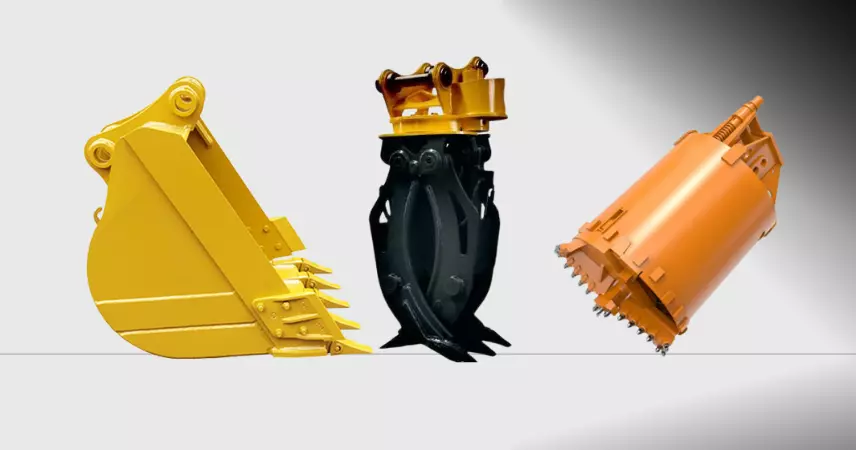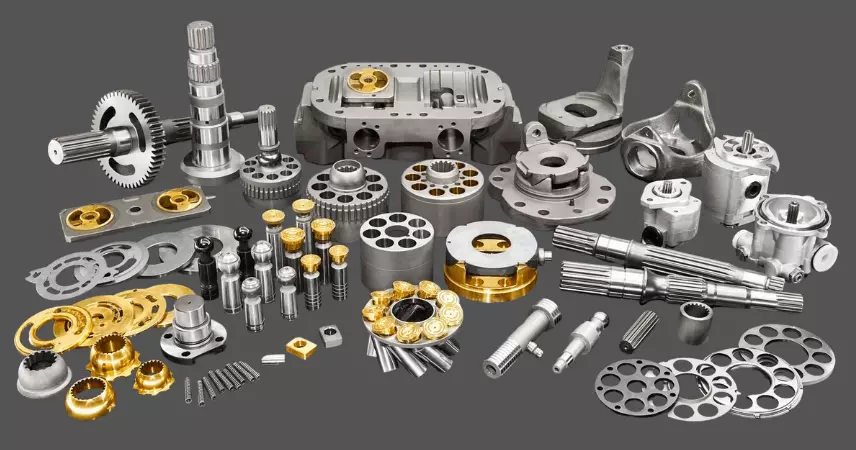+86-135 3388 0668
The Basics of Electric Hydraulic pumps and Their 12V Versions

Hydraulic pumps play a crucial role in various industries, from construction and manufacturing to automotive and marine applications. These pumps convert mechanical energy into fluid power, allowing for smooth and controlled movements of machinery. When it comes to smaller, portable applications, 12V electric hydraulic pumps are an ideal choice. These compact yet powerful units provide a reliable and efficient solution for a variety of tasks, offering versatility in their design and use.
What is an Electric Hydraulic Pump?
An electric hydraulic pump is a mechanical device that uses electric power to drive a motor, which in turn powers a hydraulic system. Hydraulic systems use pressurized fluids to perform work, and the electric pump serves as the primary means to generate that pressure. Electric hydraulic pumps are favored for their efficiency and ease of use, especially in mobile or off-grid situations where an electrical connection is available.

In particular, 12V electric hydraulic pumps have grown in popularity due to their compact size and versatility. These pumps are commonly used in applications that require a lower power output and a portable solution. The 12V design allows them to be powered by a standard car battery or other low-voltage electrical sources, making them perfect for remote locations or situations where a power grid is unavailable.
How Do Electric Hydraulic Pumps Work?
At the heart of an electric hydraulic pump is the motor, which converts electrical energy into mechanical energy. This motor drives the pump, which then forces hydraulic fluid (typically oil) through a system of hoses, valves, and cylinders to provide power. The fluid moves through the system, creating pressure that drives actuators and other mechanical parts, facilitating lifting, pushing, pulling, and other essential movements.
The key components of an electric hydraulic pump include:
Electric motor: Powers the pump and drives the hydraulic fluid.
Pump unit: The component that moves the hydraulic fluid to generate pressure.
Hydraulic reservoir: Stores the fluid used in the system.
Valves and controls: Regulate the flow and direction of fluid.
Pressure relief valve: Ensures the system does not exceed safe pressure limits.
In a 12V system, the motor is designed to run on low-voltage electricity, often drawing power from a standard 12V DC battery. This makes the 12V electric hydraulic pump particularly useful in applications that require portability and flexibility.
Applications of 12V Electric Hydraulic Pumps
The uses for 12V electric hydraulic pumps are vast and varied. These pumps provide an efficient, reliable source of hydraulic power for small to medium-scale operations. Here are a few key applications:
In the automotive sector, 12V electric hydraulic pumps are essential for a variety of tasks. They are commonly used in vehicle lifting systems, such as those found in car jacks, tow trucks, and lift gates. The compact size and portable nature of the 12V pump make it ideal for these types of applications, where ease of mobility is crucial.
Electric hydraulic pumps are often used in agricultural equipment such as sprayers, seeders, and irrigation systems. These pumps provide the necessary pressure to operate machinery in remote locations where a standard electrical grid might not be available. With the 12V option, farmers can power their equipment using a vehicle battery or solar panels, ensuring uninterrupted operation during the day.
For boats and marine vessels, 12V electric hydraulic pumps are commonly used to power steering systems, anchor winches, and hydraulic lifts. The compact design and efficient power output make them a great fit for the limited space on smaller boats while still delivering enough power to perform critical tasks.
4. Construction and Heavy Equipment
In the construction industry, 12V electric hydraulic pumps are used in a range of equipment, such as compact excavators, lifting cranes, and other small machines. These pumps provide the hydraulic power necessary for lifting and maneuvering heavy loads in tight spaces, where larger, more cumbersome hydraulic systems would be impractical.
5. Renewable Energy Systems
12V electric hydraulic pumps are also used in renewable energy applications, including wind turbines and solar panel systems. These pumps help regulate fluid power in hydraulic systems that manage the movement of components or the positioning of solar panels and wind turbine blades, enhancing energy generation capabilities.
Why Choose a 12V Electric Hydraulic Pump?
When it comes to hydraulic pumps, the 12V electric model offers several advantages that make it the go-to choice for many small to medium applications. Below are some of the main reasons why users opt for this type of pump:
One of the biggest advantages of a 12V electric hydraulic pump is its portability. Because it can run off a standard 12V battery, it is easy to move from one location to another without the need for an external power source. This is especially useful in remote locations, outdoor activities, and emergency situations.
12V electric hydraulic pumps are user-friendly and easy to operate. Most systems are simple to install, and their controls are straightforward, making them ideal for both experienced professionals and novice users. They also require minimal maintenance compared to other hydraulic systems.
Operating on a 12V power source, these pumps are energy-efficient and can be used for extended periods without draining large amounts of power. This is particularly beneficial when working off-grid or in situations where energy conservation is essential.
Due to their small size, 12V electric hydraulic pumps are perfect for applications where space is limited. Whether in a small vehicle or a tight industrial setting, these pumps can provide all the necessary hydraulic power without taking up valuable space.
Compared to larger hydraulic systems that require complex electrical infrastructure, 12V electric pumps are relatively inexpensive. Their affordability makes them a cost-effective solution for various applications, especially when budgets are limited.
Choosing the Right 12V Electric Hydraulic Pump for Your Needs
Now that we've covered the basics and the many advantages of 12V electric hydraulic pumps, let's take a closer look at how to choose the right pump for your specific needs. With so many options available on the market, selecting the right pump can seem like a daunting task. However, by understanding key factors such as pressure capacity, flow rate, and material construction, you can make a well-informed decision.
Key Factors to Consider When Choosing a 12V Electric Hydraulic Pump
Selecting the right 12V electric hydraulic pump requires evaluating several factors that will directly affect the performance and efficiency of your system. Here are the primary considerations you should keep in mind:
Pressure capacity refers to the maximum amount of pressure a hydraulic pump can generate. It's crucial to choose a pump with a pressure rating that matches the requirements of your application. If you need to lift or move heavy objects, a higher-pressure pump is necessary to ensure adequate power.
Common pressure capacities for 12V electric hydraulic pumps range from 1,000 psi (pounds per square inch) to 3,000 psi or more, depending on the specific application. Make sure to choose a pump that can handle the demands of your equipment to avoid inefficiency or equipment failure.
The flow rate determines how much hydraulic fluid the pump can move within a certain period, typically measured in gallons per minute (GPM). The required flow rate will depend on the type of system you're powering. A higher flow rate is necessary for systems that require faster movement or more forceful operation.
For example, if you're using a hydraulic pump in an automotive lift or marine winch, a higher flow rate will ensure that the system operates efficiently. Conversely, smaller equipment may function well with a lower flow rate, which can be more energy-efficient.
The duty cycle indicates how long the pump can operate before it needs to cool down. For continuous operation, a pump with a high-duty cycle rating is recommended. On the other hand, if your pump will only be used intermittently, a lower-duty cycle model may suffice. Be sure to choose a pump that fits the work duration and frequency in your application.
4. Build Quality and Durability
The build quality of the electric hydraulic pump is essential for long-term reliability. Pumps that are made of durable materials such as high-grade aluminum or stainless steel tend to last longer and resist wear and tear under harsh conditions. If your pump will be exposed to the elements or heavy-duty tasks, ensure that it is built with robust materials that can withstand such conditions.
Consider the space constraints and weight limitations of your application. If you need to transport the pump frequently or install it in a confined space, opt for a more compact and lightweight model. However, ensure that the reduced size does not compromise the pump’s performance or durability.
For portable applications, such as off-road vehicles or mobile workstations, having a 12V electric hydraulic pump that is easy to transport is crucial. Look for pumps that are lightweight, come with convenient handles, and include features such as quick-connect fittings for easy setup and disassembly.
Conclusion: Maximizing Efficiency with the Right 12V Electric Hydraulic Pump
Choosing the right 12V electric hydraulic pump involves understanding your specific needs and carefully evaluating key performance factors such as pressure, flow rate, duty cycle, and durability. Once you find a pump that fits your requirements, you can enjoy a reliable, cost-effective solution for a variety of hydraulic tasks, whether you're working in automotive repair, agricultural settings, or marine applications.
By considering all these factors and choosing wisely, you can ensure that your 12V electric hydraulic pump will provide efficient, long-lasting service, helping you complete tasks with ease and precision.
Search
Blog & News